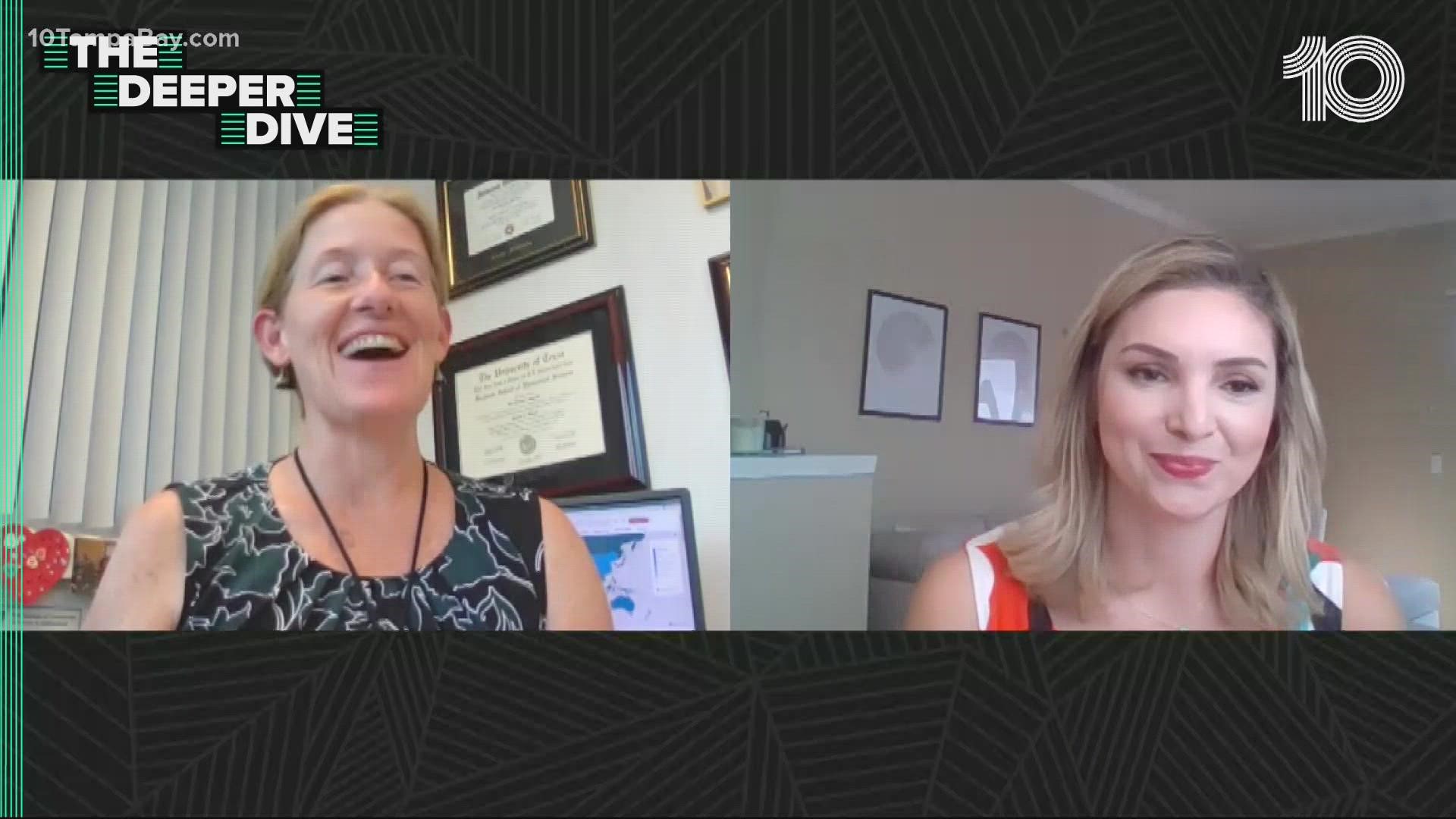TAMPA, Fla. — There are a lot of options for COVID tests, locations to get them and different brands to choose from.
Dr. Jill Roberts is a professor at USF Health. She specialized in molecular epidemiology, bacteriology, emerging diseases, food safety and bioterrorism.
We took some commonly asked questions surrounding COVID-19 to her for simple, easy-to-understand answers.
Question: What are the best and easiest at-home test kits? Is it whatever you're able to find in a store? Some instructions may be in small print, or not feasible for people of different motor skills to use.
Answer: "Yeah you're right about that, it's really going to be about what you can get your hands on. If you are going to have a child that needs testing, an elderly individual who is unable to see the instructions properly, think about that when purchasing what kind of test."
Question: What are things to look for in fake COVID test sites or COVID test kits?
Answer: "[At] anytime you can go on the FDA website and search the product you’re interested in and look and see if it has approval. If it is really truly approved for COVID it will be there. Another thing is they actually have a list for fraudulent ones.”
Question: How do at-home tests impact tracking COVID-19 on a state and county level?
Answer: "The total number that we know are confirmed COVID cases are low... Make sure your physician knows. Whoever is your primary care physician, make sure they record that case so that it actually does end up getting reported [to the Department of Health]."
Question: What is the accuracy difference between PCR and antigen COVID-19 tests?
Answer: "The PCR tests are actually better. It's about as close to perfect as we can get when testing for COVID. It's considered about 98 percent effective. One thing that really works to the advantage of the PCR test is that it will be positive really early. You could not even have symptoms yet, and the PCR will be positive. The antigen tests, that's not the case. The antigen [tests] take a little bit longer to become positive. So that works against it when we talk about how accurate it is."
Question: How common are false positive and false negative test results for antigen tests?
Answer: "In fact, we see consumers doing their own thing, where they've decided they're going to swab their throat or their tonsils or they're going to do something other than what the test is actually used for. Those things could actually give you a false negative. With the antigen tests, the probability of it being a false negative becomes higher if it isn't used properly.
"In terms of having a false positive, these would be more rare, but it's possible if you don't use the test as directed."

